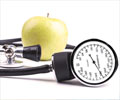Highlights
- Day time evaluation of blood pressure can miss undetected nocturnal or night time blood pressure
- Night time blood pressure monitoring should be included as part of patient management strategy to ensure an effective application of antihypertensive therapy
- Nocturnal blood pressure increases the risk of heart diseases, stroke, and coronary artery disease
According to the study lead author Kazuomi Kario, who is also a professor of cardiovascular medicine at Jichi Medical University in Tochigi, Japan, "Nighttime blood pressure is increasingly being recognized as a predictor of cardiovascular risk."
Design of Blood Pressure Study
The study by the Japan Ambulatory Blood Pressure Monitoring Perspective (JAMP) enrolled 6,359 patients from across Japan between 2009 and 2017. Half of the study patients were males aged over 65 years. All patients had at least one cardiovascular risk factor, though none had any symptomatic cardiovascular disease at the start of the study. Around three-quarters of them were taking blood pressure medications.Wearable, ambulatory monitors were used on patients to measure blood pressure during daytime and during sleep. Patients self-reported their daily activities and sleep-wake times.
Every patient recorded twenty daytime and seven night time automated blood pressure measurements. To determine nighttime measurements, patients self-reported the time they fell asleep and woke up.
The data was periodically downloaded at a health care clinic.
Among the participants, there were 119 cases of stroke, 99 cases of coronary artery disease, and 88 cases of heart failure, with a total of 306 cardiovascular events.
Findings of Nocturnal Blood Pressure Study
The findings revealed that an increase in systolic blood pressure by 20 mm Hg, above a person's daytime systolic reading during sleep, significantly increased the risk of atherosclerotic cardiovascular disease and heart failure.Similarly, an excessive drop in systolic blood pressure during sleep increased the risk of stroke.
Kario stated, "Results indicate that night time systolic blood pressure was a significant, independent risk factor for cardiovascular events."
In summary, it is important to include night time blood pressure monitoring as part of patient management strategies. This will ensure that physicians use antihypertensive therapy that effectively lowers blood pressure throughout the 24-hour period.
Reference:
- Nighttime Blood Pressure Phenotype and Cardiovascular Prognosis: Practitioner-Based Nationwide JAMP Study: - (https://www.ahajournals.org/doi/10.1161/CIRCULATIONAHA.120.049730)
Source-Medindia
















